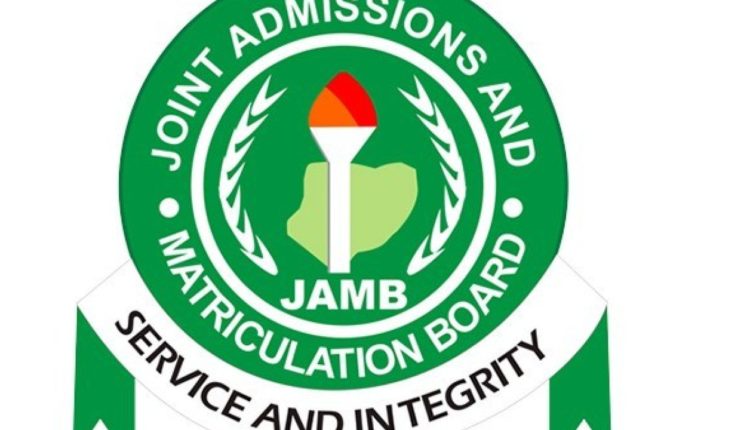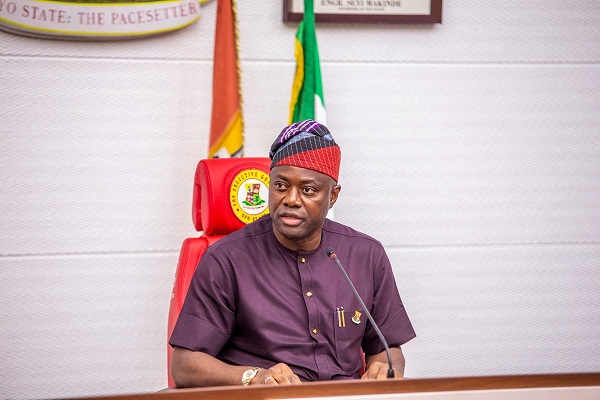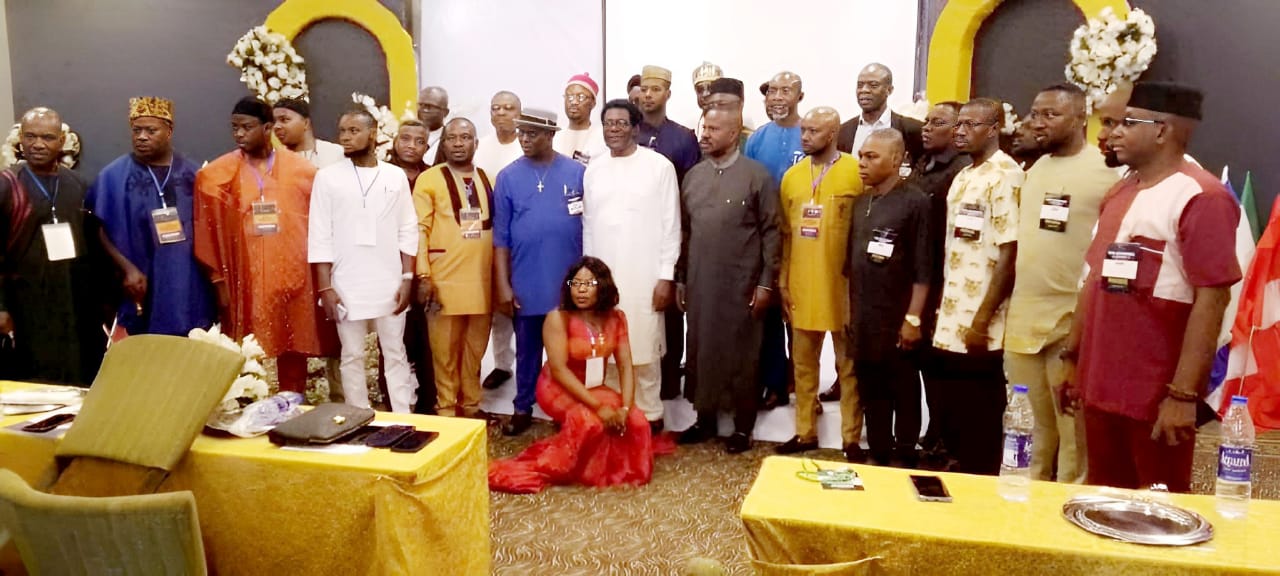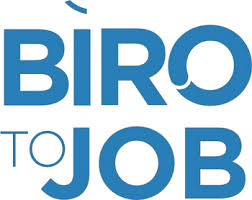Beneath The NIN-SIM Partial Deactivation

The April 4 directive of the Federal Government to the Nigerian Communications Commission (NCC) to bar telephone subscribers yet to link their Subscriber Identity Module (SIM) with their National Identity Number (NIN) has brought avoidable pains to affected subscribers. Already, no fewer than 72.7million subscribers have been partially shut-out. LUCAS AJANAKU writes on the issues around the exercise.
At the expiration of the March 31, 2022 timeline given by the Federal Government to subscribers to link their SIM with their NIN, the Nigeria Communications Commission (NCC) said over 125 million SIMs have had their NINs submitted for immediate linkage, verification and authentication.
The National Identity Management Commission (NIMC) also said it has issued over 78 million unique NINs. The March deadline marked the eight time after the first deadline of between December 16 and 30, 2020 was extended to January 19, 2021.
The euphoria that came with the liberalisation of the telecoms sector in 2001 did not give room for proper planning around the process of SIM acquisition. So SIM cards were hawked across the country like groundnuts and sold to willing buyers, including criminals, without attaching proper identities to their owners.
As a matter of fact, pre-registered SIM card sale was rampant despite the operators knowing the criminal implication of such action should they be caught by the long arm of the law. Indeed, all the operators were eventually apprehended and huge sanctions imposed on them by the NCC.
But the imperative of SIM registration became apparent when the mobile phone became a facilitator of criminal activities. Intimidation, kidnap-for-ransom and other vices became the order of the day. A source in the NCC said SIM cards became lethal weapons in the armoury of Boko Haram terrorists.
Therefore, the Federal Government had in December 2009, announced that with effect from March 1, 2010, all new SIM cards in Nigeria must be registered before activation.
“The NCC, in exercise of its regulatory functions as provided for by the Nigerian Communications Act (NCA) 2003, wishes to inform the relevant stakeholders that arrangements have been concluded for the commencement of registration of SIM card holders in Nigeria. The registration will include the capture of the photograph and biometrics of the subscriber,” a statement by NCC had said.
In 2019, when insecurity in the country assumed a disquieting proportion, the NCC said registration of new SIM cards will require the presentation of NIN and announced immediate enforcement of the new rule, noting that the move became necessary following the rising criminality in the country.
According to its Executive Vice Chairman (EVC), Prof. Umar Danbatta, the policy is in line with the NIMC Act 2007 relating to NIN regulations, which provide that a person must provide his/her unique number to register a SIM card. Consequently, Danbatta said the NCC, in collaboration with relevant stakeholders, had set in motion mechanisms for compliance.
The Minister of Communication and Digital Economy, Prof Isa Pantami, had stopped the sale of new SIM cards, a move that had debilitating unintended consequences on subscriber figures and inevitably, the bottomline of the Mobile Network Operators (MNOs).
New SIM reg policy
When the Federal Government finally lifted the embargo on new SIM registration on April 19, last year, it came with strict policies, one of which was the activation of new SIM card registration with mandatory NIN.
Pantami, who issued the directive, said the approval was in line with the Revised National Digital Identity Policy for SIM Card Registration.
Technical Assistant (Information Technology) to the Minister, Dr Femi Adeluyi, said the implementation of the policy will commence on April 19, last year.
Adeluyi explained that the issuance of new SIMs and other suspended activities would resume on the same date, as long as verification was done and the guidelines were fully adhered to.
NCC and NIMC were directed to ensure that the provisions of the policy are strictly followed by operators and subscribers.
The Nigerian Communications Act (NCA) 2003, Section 23(a) specifies the role of the minister to include the formulation, determination, and monitoring of the policy for the communications sector.
“The minister had coordinated and led the development of the Revised National Digital Identity Policy for SIM Card Registration in collaboration with other stakeholders.
“An earlier policy was approved on February 4, 2020, while the Revised Policy was developed in early March 2021.
“The final amendments to the revised policy based on the directives of Mr President to make the use of NIN mandatory for all SIM registration were completed April 14, 2021.
“Prior to that, the key aspects of the draft policy were presented to the stakeholders at the Fourth Review Meeting of the Ministerial Task Force (MTF) on the NIN-SIM registration which was held on 26th of February, 2021,” he said.
The policy includes Guidelines on New SIM Acquisition and Activation, SIM Replacement, New SIM Activation for Corporates and Internet-of-Things/Machine-to-Machine (IoT/M2M), among others. The possession of a NIN will be a prerequisite for each of these categories.
For the corporate registration, he said institutions will be required to appoint a Telecoms Master (at the minimum of an Executive Management level) to provide the operational Primary NIN representation.
“The Telecoms Master will also be responsible for ensuring that the users provide their NINs to serve as a secondary NIN.
“For IoT/M2M activations, SIM security protocols would be implemented on the SIM profile to ensure that SIMs can only be used for point-to-point data services specific to the URL they are working with.
“All other services will be barred. In the event that a data only service is particular to individual use (eg home car tracking, WiFi, MiFi services, etc), the standard NIN registration process will be followed.
“A Telecom Master will also be required for Corporates requiring IoT/M2M activations. The full details of the requirements for each class of service will be made available in due course.”
Adeluyi had stated that significant progress has been made in the process across the country, noting that the Federal Government is committed to supporting Nigerians and legal residents to obtain a NIN.
“The biometric verification has been slower than anticipated, owing largely to the non-adherence of many previous SIM biometric capture processes to the NIMC standards.
“The Revised Policy will ensure that operators conform to the required standards for biometric capture.
“The Guidelines in the Policy have been painstakingly developed and while they are thorough, it should be noted that they have been developed that way in National interest since the SIM is essentially a national resource,” he explained.
Trust or lackadaisical
What could have been responsible for so many subscribers who daily throng telecom companies offices and enrolment centres to get their NIN and wait to get their NIN verified so that they could be unbarred from originating calls from their lines?
While some subscribers say they do not want to share their data because they do not trust the system, others say they have yet to see how impactful the exercise has been in checking crimes across the country. Kidnappers, they say, still use the network to negotiate ransom from the families of the captors.
The Director-General, NIMC, Alhaji Abdulaziz Aliyu, said the reason about 73 million subscribers were caught napping was purely attitudinal. According to him, it was sheer display of lackadaisical attitude that made them either not to link their SIMs with their NINs or failed to enroll to be captured into the National Identity DataBase (NIDB).
Aliyu, who was a guest on NTA programme at the weekend, along the Chaiman, Association of Licensed Telecom Companies of Nigeria (ALTON), Gbenga Adebayo; Executive Commissioner, Stakeholders Management at NCC, Mr. Adeolu Adewolu; and an Associate Professor and Executive Director, Centre for Cyberspace Studies (CCS), Nasarawa State University, Keffi, Dr. Uche Mbanaso, said as at the time the last extension was given in December, there were about 50 million NINs
He underscored the importance of the programme to national security and the ability of the government to plan effectively for the citizens. He said in the United States, there’s the Social Security Number while in the United Kingdom, there is the National Insurance Number. India, which he said, shared some commonalities with Nigeria, registered 1.3billion people within five years and issued them Aadhaar, lamenting that Nigeria started the process since 2012 and has not been able to attain the 100 million mark.
Adewolu agreed with him. He said it was unfortunate that people didn’t take time to enroll for NIN until it became an issue of enforcement. He said only 125 million is in the kitty of the NCC, saying he did not know whether the 72.7million partially deactivated had NIN or not.
Challenges
While apologising to subscribers for the pains they were going through, sleeping at enrolment centres, Adebayo said the journey had been on since 2020, pledging the support of the MNOs to realising the objective of helping the Federal Government to get a credible national data base.
He blamed the slow process of verification on the “other end”.
“In the first place, people’s outgoing calls have been barred and a lot of people depend on this for their daily livelihoods. The crowd is the problem but people come with the objective of either obtaining a NIN or register their new SIM but the crowd is enormous. It is difficult to manage because people have come to capture their NIN, waiting for verification of their NIN. It is taking time to get the verification and get back to them; we can lift the bar until verification is done; the system at the other end is a bit slow in responding. As service providers, we are doing all we can but really, a number of these issues are not on us other than the crowd, the delay in verification is certainly not coming from telecom operators,” he said.
Analysts said like the stoppage of new SIM sales last year that took a toll on total subscriber figures and their books, the partial deactivation would affect the financials of the telecoms companies.
“Some 72million subscribers can’t make calls but can receive. The MNOs make money when customers make and receive calls. Therefore, it is logical to expect a decline in cash flows to the service providers,” a sector analyst said on condition of anonymity.








